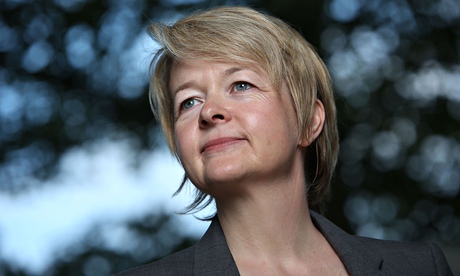
The most interesting titles of 2014 weren’t necessarily the most prominently reviewed or most celebrated. Except, of course, for Richard Flanagan’s The Narrow Road to the Deep North (Chatto & Windus £16.99), a profound and affecting masterpiece about a Japanese POW camp on the Burma death railway, which richly deserved its Booker win. Not an easy read, but a hugely rewarding one. And a favourite for me because it’s the first time I have read a Booker winner ahead of the book actually winning the prize. Usually if I’ve read your book, it means you will lose.
This was a year for books that comfortably bridged the literary-commercial divide. Which is exactly where Sarah Waters’s hugely enjoyable suffragette-era The Paying Guests (Virago £20) fits in alongside Kate Mosse’s excellent page-turner The Taxidermist’s Daughter (Orion £16.99). Both are tightly-woven psychological thrillers, with Mosse offering a characteristic hint of the gothic and Waters painting a jaw-droppingly detailed historical portrait of a doomed love affair.
The romantic-comedy-in-novel-form, Us (Hodder £20) by David Nicholls, falls neatly into this category too: not quite literary, not overtly commercial, Us is an entertaining and clever crossover read. For my money, it’s one of the best portrayals of the complexities of a long-term relationship I’ve seen in a contemporary novel as well as being a rather wonderful whistlestop tour around some of the great cities of Europe. InterRail meets marriage guidance. Original, thought-provoking and, importantly, fun.
Martin Amis’s The Zone of Interest (Jonathan Cape £18.99) was easily the most underrated, almost ignored, novel of the year. Rejected by Amis’s German publisher and rubbished by key critics, it is supremely, wantonly funny and breathtakingly audacious. (Note: I am not an Amis obsessive.) Worth buying just to read the acknowledgments, where he goes to great lengths to attempt to justify the arrogance of writing a quasi-satirical novel set in a Nazi concentration camp. There’s something extraordinarily touching about the fact that Amis has evidently been building up the courage to write this book for decades and has dutifully done all the background reading to prove it. He didn’t need to justify it: it’s a brilliant feat of imagination and chutzpah. If you are a fan of the darkly, obscenely comic, you’ll be able to stomach it.
Not exactly overlooked but hardly overhyped either was The Bone Clocks (Sceptre £20) by David Mitchell. It had a mixed reception from critics (and, like Us, didn’t make it past the Booker longlist). This is a fantastical, ambitious, bold and exuberant read involving time travel and immortality. Its playful eccentricity and lightness of touch are reminiscent of Bulgakov’s The Master and Margarita. Also needlessly damned with faint praise: The Children Act (Jonathan Cape £16.99) by Ian McEwan. Taut and concise, this explores the personal and professional dilemmas faced by a family court judge.
The reading year culminated with two hotly anticipated books: Jane Smiley’s masterful, lyrical Some Luck (Mantle £18.99), the first of a multi-voiced trilogy which opens on a remote farm in Iowa in the 1920s, and Elif Shafak’s The Architect’s Apprentice (Viking £14.99), the story of an elephant tamer in the sultan’s court of the Ottoman empire. Turkey’s most successful female novelist, Shafak has been flirting with mainstream commercial success. This could (and should) be the novel that changes everything for her.
Finally the book of the year has to go to The Miniaturist (Picador £12.99) by Jessie Burton, the fastest-selling debut since Fifty Shades of Grey. The writing is fluid and addictive and the story grows out of the most irritatingly brilliant idea imaginable: in 17th-century Amsterdam, a bride receives a doll’s house that is an exact replica of her new household. The Miniaturist is not the perfect novel (and rightly so – it’s a debut) but its success represents a much-needed shot in the arm for the publishing industry and is a ray of hope for new writers everywhere.

